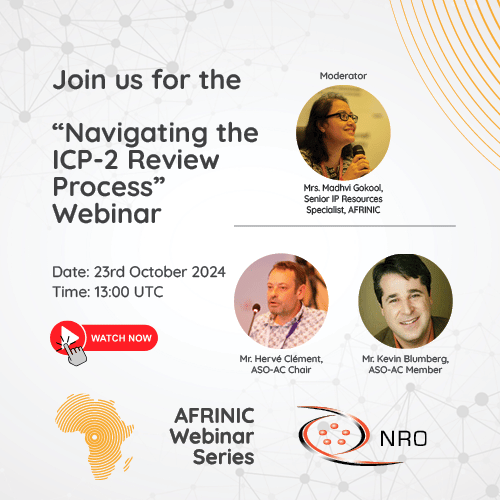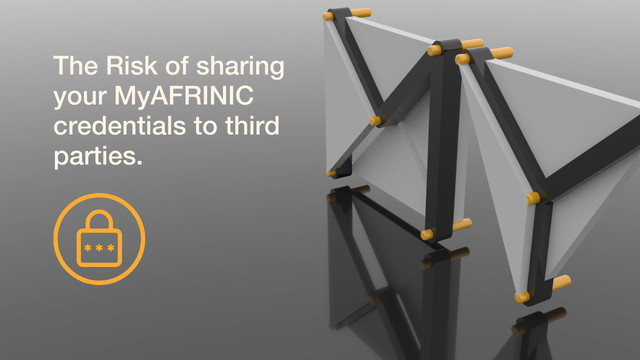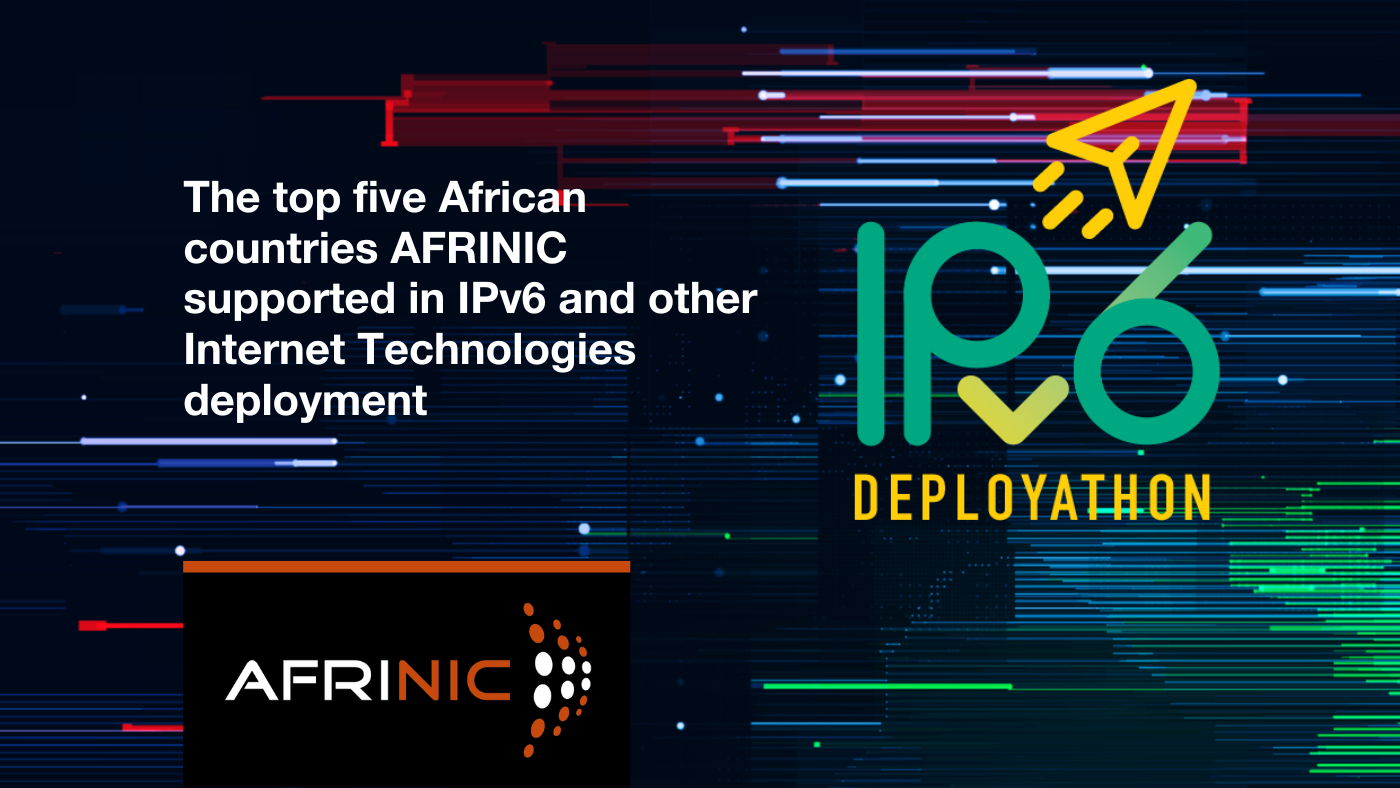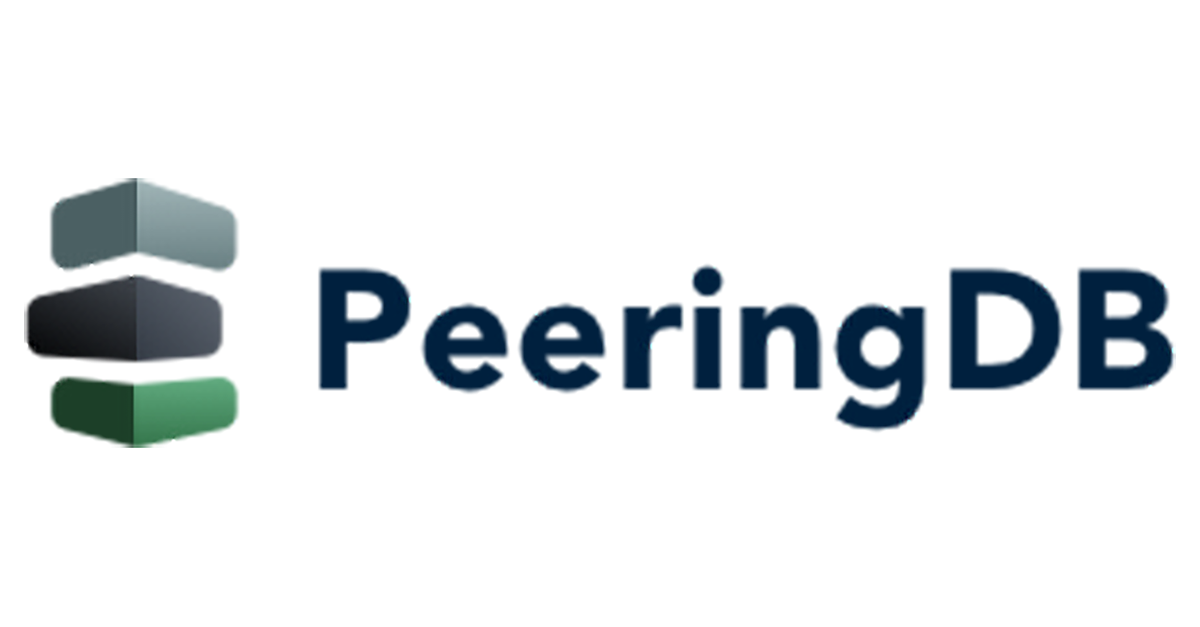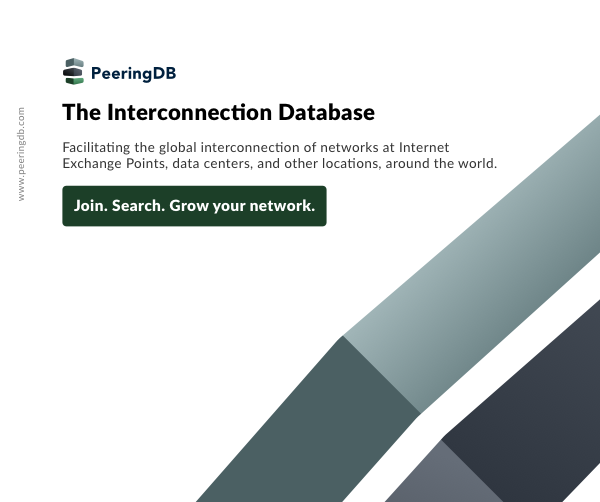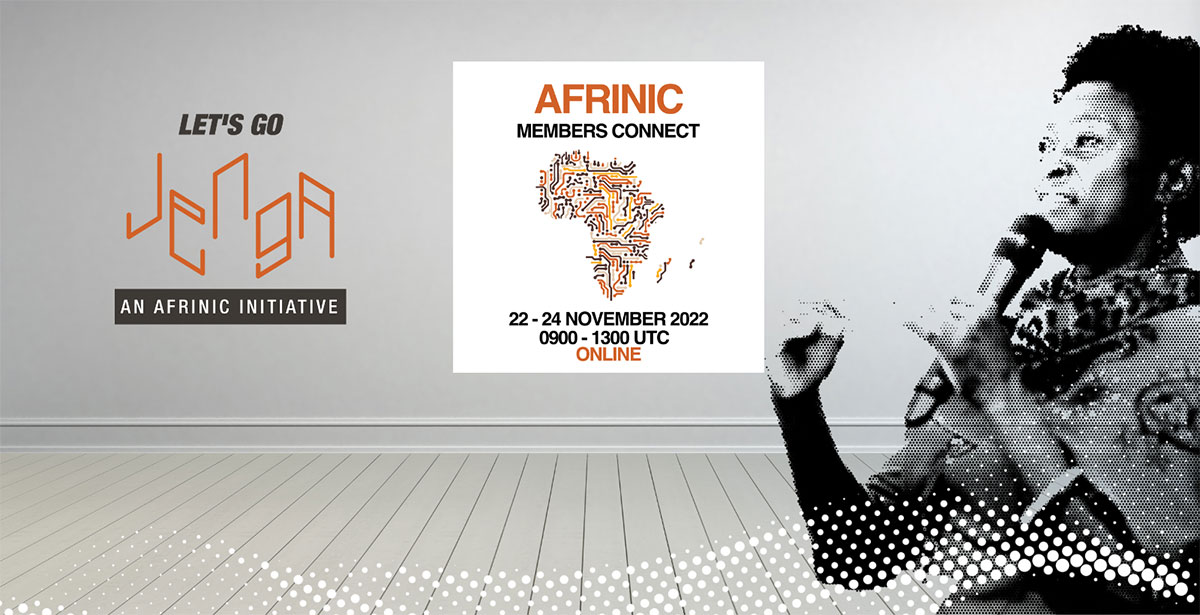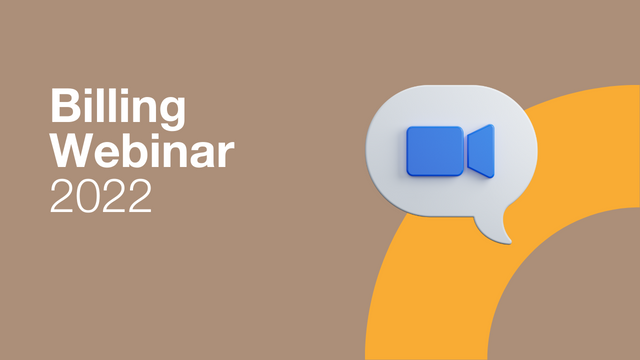The risk of sharing your credentials to third parties
- Posted By Ganessen Gurunaden
- Published On -
- Hits: 5548
This is to alert AFRINIC Resource Members of a misleading email communication from purported representatives of a fictitious organization; targeted at AFRINIC Resource Members (“members”), soliciting them to sign a power of attorney form and surrender their MyAFRINIC portal credentials with them for the purpose of casting a vote for Board Member’s seat. Here is an example of such an email.

